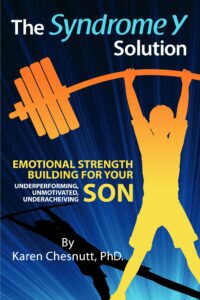Over the last few years, I have worked with patients who are aging out of the public school systems. Often, their families are planning to have that child continue to live with them, because they feel that their handicapped child is unable to live independently. Many of these children/young adults are not good candidates for group homes, because they are too high functioning, but they cannot live without support either. The problem becomes more complicated because as these young people get into their 20’s, their emotional development is similar to their non-handicapped peers—they want to be living out in the world, not in their parents’ homes.
As a result, many parents have worked to figure out an in-between arrangement where these young adults can live in apartments and have the staff come in to provide support. Some have joined together with other families so young adults can be sharing a house and support staff.
For young adults living at home or in one of these alternate settings, there are still concerns. Here is a partial list:
- They continue to be isolated. They may live in the community, but many have very limited interaction with people in their neighborhoods or in their communities.
- Most do not have transportation except for their family members. This makes it difficult for them to be truly independent.
- The opportunities available in the community for recreation are somewhat limited. The opportunities for casual relationships and activities is very limited.
The parent of one of these young adults showed me a program in Florida that seemed to me to provide an answer to some of these concerns and I have been encouraging as many people as possible to begin a discussion of whether this may be an answer for the young people in this area. Basically, the people at Noah’s Ark in Florida have built a community, with a community center in the middle. It is my understanding that there are a variety of housing options in the community—group homes, supported apartments, etc. Then, programs are developed at the community center that residents can participate in. I have learned since first hearing about this that there are several other similar programs in the country. In some ways, this looks similar to some of the models developed for senior citizens.
It would be interesting if this type of program could include a fitness center, where residents could swim. Or a café where they could go for coffee. I could see a number of possibilities for our young adults to live a more “normalized” life in a community that provided both safety and opportunities for independence.
Some have told me that one of the reasons not to support this type of program is that the emphasis should be on integration into the community. I would argue that we don’t really have integration at the present time; these young adults are very isolated. I think this model could be “integrated” by bringing in non-handicapped peers to staff the programs or possibly to participate in events.
My goal at this point is just to begin a dialogue about whether this type of program might be a possibility for handicapped young adults in this area. I hope that parents will begin to discuss this, because it has been my observation that parental input is crucial in developing new programs to meet their children’s needs.



